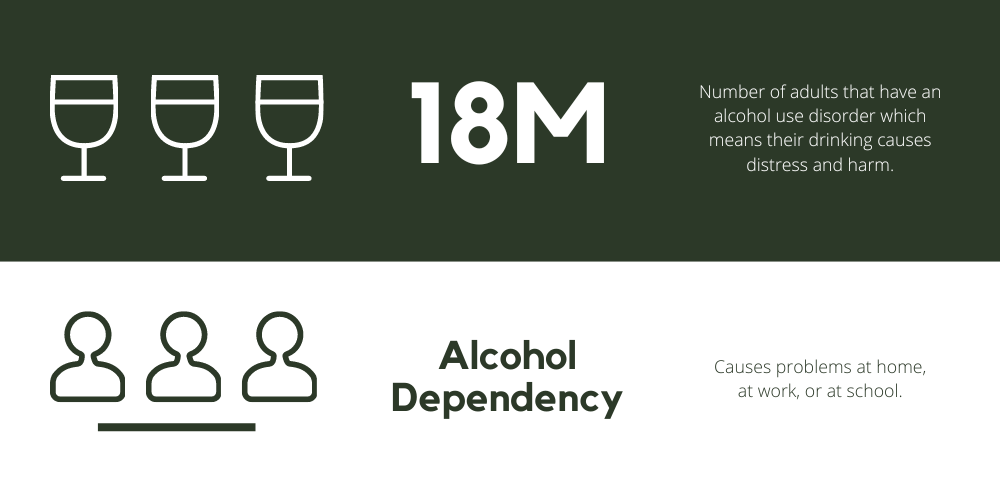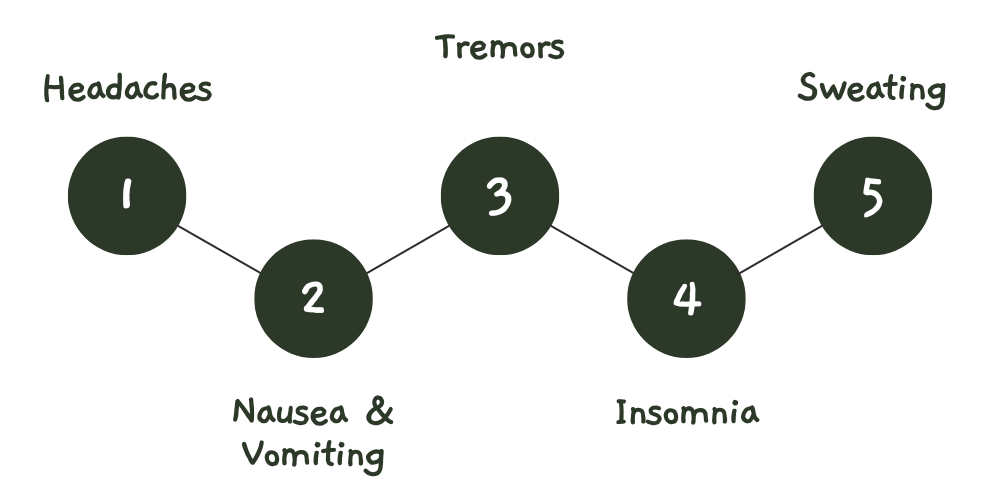
Medically Supervised Mission Viejo Alcohol Detox
Mission Viejo alcohol detox is the first step for many people struggling with alcohol dependence. Alcohol detoxification removes alcohol from the body while managing withdrawal symptoms that may be uncomfortable or even dangerous. At Sullivan Recovery, our detox program focuses on patient safety, comfort, and long-term sobriety.
Alcohol withdrawal can lead to symptoms like nausea, vomiting, insomnia, fatigue, anxiety, and irritability. In severe cases, delirium tremens can cause confusion, delirium, rapid heart rate, and even seizures. Medical detox ensures that vital signs are monitored and that each patient receives proper medication when needed.
Some patients may also experience headaches, mood swings, and changes in appetite during early detoxification. These symptoms are part of the body’s adjustment as alcohol leaves the system and the brain begins to rebalance chemical signals. Our staff is trained to provide both medical and emotional support during this transition.
Attempting alcohol detox at home carries significant risk. Without professional evaluation, withdrawal can escalate quickly into a medical emergency. Our treatment center in Orange County provides inpatient and outpatient rehab options for alcohol detoxification.
Medical detox at Sullivan Recovery uses evidence-based medication to reduce discomfort, prevent complications, and stabilize mood. We also focus on nutrition, hydration, and rest to support brain and body recovery during detoxification. Nursing staff are available to monitor dose adjustments and address any health concerns.
By providing 24/7 monitoring for high-risk cases, we can respond immediately to dangerous symptoms such as seizures, hallucinations, or rapid changes in heart rate. This level of care can mean the difference between a safe recovery and a life-threatening complication.

Alcohol is one of the most misused substances in California, but it’s not the only concern. Orange County has seen a rise in opioid and fentanyl use, with many patients requiring both drug detoxification and alcohol detoxification. According to county health data, opioid overdose deaths in the area have increased, with fentanyl involved in a large percentage of cases.
Methamphetamine, benzodiazepine, and stimulant misuse also remain significant problems. Many individuals misuse alprazolam and other prescription drugs, leading to physical dependence and heightened relapse risk. Our California detox programs address both alcohol and drug misuse in one setting.
In Mission Viejo and surrounding cities, public health reports indicate that emergency room visits linked to alcohol and opioids have been climbing. This highlights the need for local detox centers that can manage multiple substances and treat patients with co-occurring drug and alcohol problems.
An outpatient rehab program can be an effective choice for those with mild to moderate withdrawal symptoms. Patients can receive medical detox support during the day and return home at night. Sullivan Recovery’s outpatient rehab model works well for people with strong support systems and lower risk of severe withdrawal.
Outpatient detox programs at our Mission Viejo treatment center include medication management, mental health treatment, therapy sessions, and coping skills training. We also offer mindfulness practices like meditation and yoga to reduce stress and improve attention and mood.
For many working adults or parents, outpatient rehab provides a way to get professional treatment without fully stepping away from daily responsibilities. However, our team closely monitors each patient to ensure outpatient care remains a safe and effective choice.
Many people seeking Mission Viejo alcohol detox have a dual diagnosis, meaning they face both addiction and mental health disorders. Depression, panic disorder, and anxiety are common among people with substance use issues. Treating both conditions together improves long-term recovery outcomes.
Our mental health treatment approach includes psychology-based interventions such as dialectical behavior therapy, cognitive strategies, and motivation enhancement. We help patients build new behavior patterns to avoid triggers and prevent relapse.
This integrated approach also addresses underlying trauma, stress, and emotional pain that may have contributed to substance abuse. By improving mental health, we reduce the likelihood of relapse and support lasting change.

Sullivan Recovery offers medication-assisted treatment for both alcohol and opioid detox. Medications like buprenorphine and naltrexone help manage cravings and withdrawal symptoms. Naloxone is available to reverse opioid overdose in emergencies.
For alcohol detoxification, certain medications can reduce the risk of seizures, stabilize mood, and improve sleep. Every patient receives an individualized medication plan after thorough evaluation by our expert medical staff.
These medications are used alongside therapy, healthy nutrition, and consistent medical supervision to address both the physical dependence and the mental stress of detox. This combined approach supports smoother transitions into sobriety.
Detox is not only a physical process—it also affects the mind. Patients may feel fear, stress, or uncertainty during this time. Our treatment programs include counseling, group therapy, and relaxation techniques like meditation to calm the mind and improve emotional health.
Nutrition is a vital part of the detox process. Alcohol misuse often leads to vitamin deficiencies and poor immune health. Our detox centers focus on restoring physical health through balanced meals, hydration, and supplements when needed.
We also encourage light physical activity, when appropriate, to improve mood, reduce anxiety, and help regulate sleep cycles. Even simple stretching or yoga can promote better circulation and overall health during recovery.
Some patients need the higher level of care offered by inpatient rehab. This option provides 24/7 monitoring of vital signs, structured therapy, and immediate medical response in case of complications like delirium tremens or severe vomiting.
Others may do well in outpatient treatment programs, which allow more flexibility while still offering medical oversight, therapy, and relapse prevention strategies. Our Orange County rehab team will help determine which program is best based on risk factors, dose history, and mental health needs.
We also offer step-down programs, allowing patients to move from inpatient detox to outpatient care as their stability improves. This gradual transition helps maintain progress and prevent relapse.
Sullivan Recovery is an expert-led California detox provider serving Mission Viejo and surrounding Orange County areas. We offer medical detox for alcohol, opioids, stimulants, benzodiazepines, and other drugs. Our rehab programs are built around safety, personalized care, and lasting sobriety.
Every patient receives a thorough evaluation, individualized detox program, and access to therapy that addresses both substance abuse and mental health. We work with most health insurance providers to reduce financial barriers to treatment.
Our treatment center is designed to feel safe and supportive, with staff who understand the challenges of recovery. From the first phone call to ongoing aftercare, we are here to guide each patient every step of the way.
Detox is only the first step. To maintain sobriety, patients need continued treatment for addiction, coping skills training, and mental health therapy. Our programs include one-on-one counseling, group support, relapse prevention strategies, and healthy lifestyle practices like yoga and meditation.
Recovery also means learning how to manage triggers, handle stress, and maintain motivation. We help each patient build a structured plan that supports long-term success.
We also connect patients with local recovery resources, peer support groups, and ongoing therapy to strengthen their commitment to sobriety.
Alcohol misuse is a chronic disease that can damage the brain, liver, and heart. Without treatment, physical dependence increases and withdrawal symptoms become more severe over time. The same is true for opioid, methamphetamine, and benzodiazepine misuse.
Opioid overdose remains a major cause of death in California. Delays in seeking detox can lead to permanent health damage, worsening mood disorders, and higher relapse risk. Early intervention is critical for both safety and long-term recovery.
Ignoring addiction also increases the likelihood of legal problems, strained relationships, and financial hardship. The sooner treatment begins, the greater the chance for a healthier future.
Sullivan Recovery uses multiple therapy methods to support patients during and after detox. Dialectical behavior therapy helps improve emotional regulation and stress management. Psychology-based approaches focus on changing harmful behavior patterns.
Therapy sessions also teach practical coping skills for managing cravings, handling anxiety, and building positive habits. These strategies are essential for preventing relapse after medical detox.
Family therapy is also available to rebuild trust, improve communication, and create stronger support networks for ongoing recovery.
Many people avoid seeking treatment because they worry about cost. Sullivan Recovery accepts most health insurance plans for medical detox, inpatient rehab, and outpatient programs. Our admissions team can verify coverage and explain benefits before treatment begins.
Having insurance for alcohol detoxification can greatly reduce out-of-pocket costs, making treatment more accessible for those who need it. Patients without insurance can discuss alternative payment options with our team.
We encourage all potential patients to reach out for an insurance verification call before delaying treatment due to financial concerns.
The goal of Mission Viejo alcohol detox is not just to stop drinking but to restore health and create a sustainable life in recovery. With proper treatment, individuals can heal physically, mentally, and emotionally.
We encourage patients to stay engaged in aftercare programs, maintain motivation, and continue building healthy habits. With ongoing therapy, community support, and professional guidance, long-term sobriety is possible.
At Sullivan Recovery, we believe recovery is a lifelong journey—and the first step can start today.
The length of alcohol detox varies based on factors like how much and how often you drink, your overall health, and whether you have other medical conditions. Most patients experience withdrawal symptoms for about 5–7 days, with the most intense symptoms occurring within the first 72 hours. Medical detox at Sullivan Recovery is designed to help you complete the process as safely and comfortably as possible
Yes. Many patients require detox for alcohol and other substances, such as opioids, benzodiazepines, or stimulants. Our medical team can create a combined detox plan that addresses each substance safely and reduces the risk of complications.
After detox, patients are encouraged to continue treatment through inpatient rehab, outpatient rehab, or ongoing therapy. This step is important because detox addresses the physical dependence, but long-term recovery also requires mental health support, coping skill development, and relapse prevention.
Many health insurance plans cover alcohol detox, including both inpatient and outpatient programs. Our admissions team can verify your benefits quickly and help you understand any potential out-of-pocket costs before treatment begins.
We are available around the clock to assist you, every day of the year.
© 2024 Sullivan Recovery. All rights reserved.